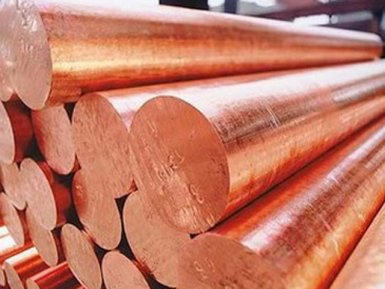The wire coil of Nitinol alloy

Supplier — the company AvecGlob — offers to purchase at affordable prices from the manufacturer a wire and a spring of nitinol. The supplier guarantees the prompt delivery of products to any address specified by the consumer /
Technical specifications
The structural basis of nitinol is the intermetallic equiatomic binary Ni-Ti alloy. The alloy has a moderate range of solubility, allowing the composition and alloying of other elements to change in order to change shape memory and mechanical properties.
Nitinol reflects the general behavior of the shape memory, returning to its original form after heating to the phase transformation temperature. When heated to this temperature, nitinol passes from a low-temperature monoclinic martensitic structure to a high-temperature cubic austenite structure.
Urgency of application
It is caused by the following properties of wire and springs made of nitinol:
• Creation of significant efforts due to shape memory effect;
• Excellent damping properties, which appear below the temperature of the structural transition;
• Excellent corrosion resistance;
• Non-Magnetic;
• High fatigue strength;
• Moderate resistance to shock loads;
• Moderate heat resistance;
• Biocompatibility.
These properties stipulate the practical use of nitinol for the production of fittings and couplings in military equipment, tweezers for the removal of foreign objects with small incisions, anchors for fixing tendons and stents used in cardiovascular surgery. Industrial applications — safety valves / actuators for monitoring water temperature and fire sprinklers, vibration control devices, fasteners, interlocking clamping devices, antennas for household phones.
Chemical composition
The most known of the alloys of nickel and titanium is nitinol-55, which contains 45% of titanium and 55% of nickel.
Physical and mechanical properties
Density, kg / m 3 — 6500;
Melting point, 0 С — 1310;
Coefficient of thermal conductivity, W / mdg — 18;
Modulus of elasticity, GPa — 40/75;
The limit of temporary resistance, MPa — 800… 820;
Yield strength, MPa — 440… 500;
Hardness in Brinell, HB, not more than — 320;
Impact strength, kJ / m 2 — 330… 590;
Relative elongation at tension,% — 10.
Technological features of material application
Two methods of primary smelting are used to produce nitinol:
Vacuum arc remelting: in this method, an electric arc is excited between a copper plate that is cooled by water and the original components;
Vacuum induction melting: the raw material is heated in a carbon crucible using an alternating magnetic field.
Less common are induction or plasma-arc melting, as well as electron-beam melting.
Supplier — AvekGlob Company — offers to buy a spring and wire, which are made of titanium-nickel alloy nitinol, at a price formed on the basis of European and world standards of production. Buy these products can be wholesale and retail. For regular customers, there is a flexible system of discounts.


